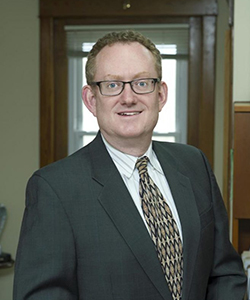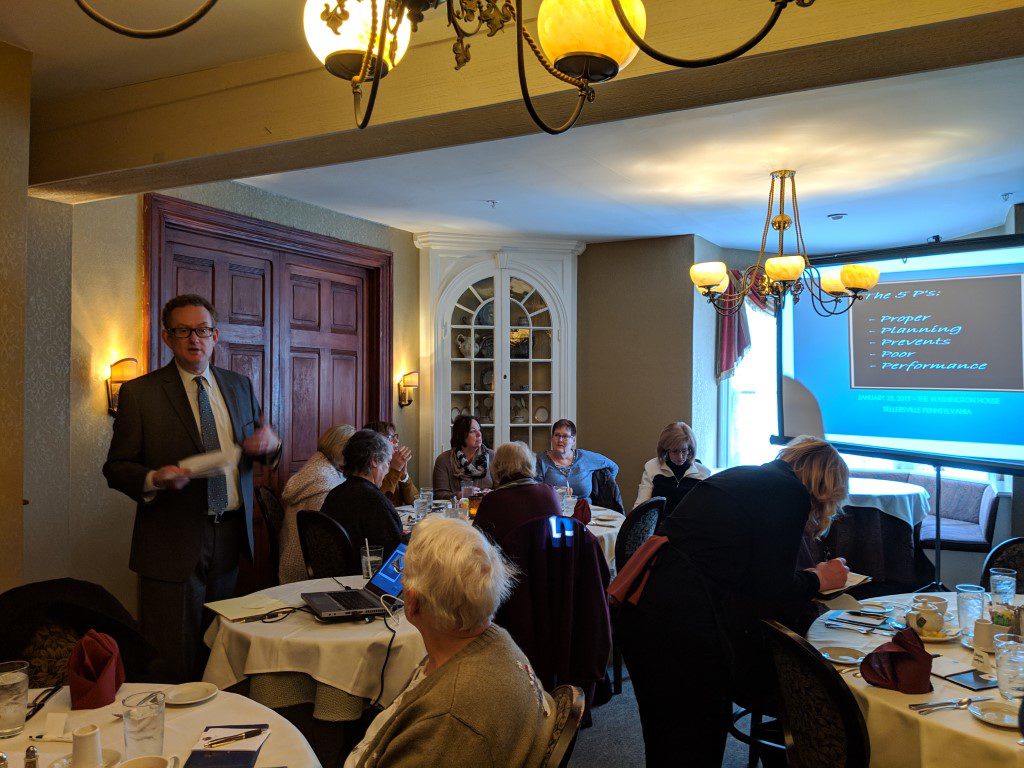Attorney Mike Frisbie recently had the pleasure of speaking at a “Ladies Luncheon,” part of Edward Jones advisor Bob Podraza’s Coffee Club. Mike shared an overview of estate planning, explaining the essential components as well as covering common misconceptions and pitfalls. We held a similar seminar this past fall and are planning to host additional free sessions in the spring of 2019. If learning how to begin your estate planning is on your
At its core, an estate plan outlines the mechanisms that will be put to work to dispose of your property after you pass away. These instructions are dictated within your Will, which is the official record of your final wishes, instructing where and to whom your property will go. A will controls only the items held in your name, such as:
- Real estate
- Cash, stock
- Property, personal and real
It also dictates how the money you leave behind is to be distributed, whether to your spouse, children, other relatives and gifts to charity.
A will does not control:
- Life insurance
- Retirement accounts
- Joint accounts
- Certain types of deeds
- Anything with a beneficiary designation (retirement accounts, life insurance, etc.)
It is also wise to include a designation for a Power of Attorney, someone you trust to act as your official “Agent” to carry out your affairs in the event you become incapacitated, whether temporarily or long-term. There are several types of Power of Attorney designations, which we explain in this blog post.
If you die without a will, that is known as dying “intestate.” For Pennsylvania residents, this means your assets will be distributed according to the Pennsylvania Law of Intestate Succession.
No matter what, you should always be able to understand what your Will and any Powers of Attorney documents say. This is where my litigation background becomes key, as that knowledge helps me make certain these points are presented clearly and minimize the potential

Mike Frisbie concentrates on Estate Planning; Estate Administration; and Business Formation, Organization, and Counseling. He takes pride and pleasure in helping people and businesses solve their problems
Follow Mike on Twitter @TrustinFrisbie.
This article is designed for general information only. The information presented should not be construed to be formal legal advice nor the formation of a lawyer/client relationship.


 According to the AARP (citing a study from caring.com),
According to the AARP (citing a study from caring.com), 
 We are pleased to welcome attorney
We are pleased to welcome attorney